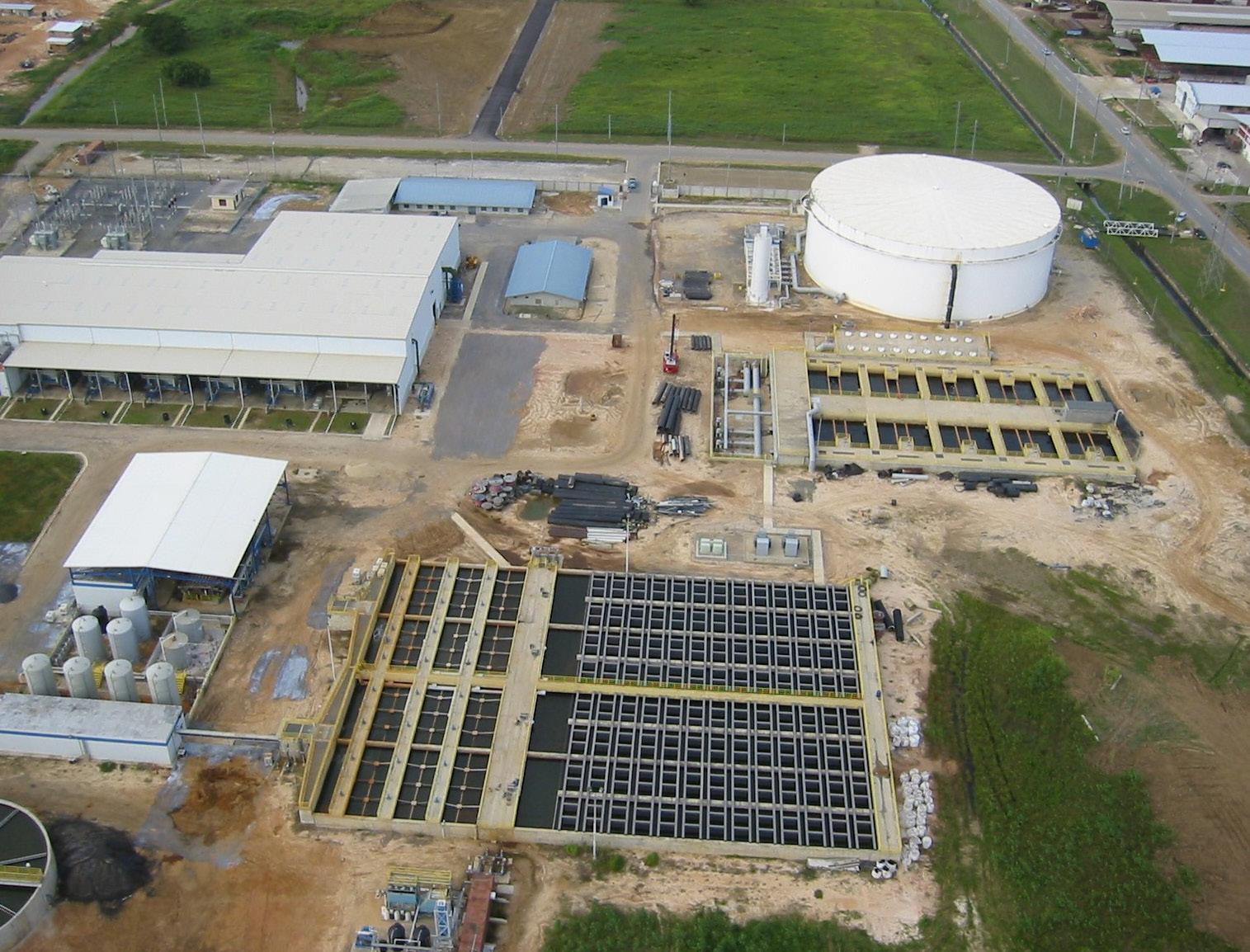

THE TRINBAGONIAN ENTERPRISE FIGHTING THE WORLD’S WATER PROBLEM

THE TRINBAGONIAN ENTERPRISE FIGHTING THE WORLD’S WATER PROBLEM
“Water can create peace or spark conflict,” says the UN in its 2024 World Water Day Campaign, “When water is scarce or polluted, or when people have unequal, or no access, tensions can rise between communities and countries,” it continues.


DESALCOTT PROJECT DIRECTED BY: ADEL MHIRI
ARTICLE WRITTEN BY: LAURA WATLING
One country which can attest to this belief is the Republic of Trinidad and Tobago, which in September 2023 saw further protests due to water shortages in the country.
Attributing the shortages to climate change and decreased rainfall, Trinidad and Tobago’s Water and Sewage Authority (WASA) is implementing short, medium, and long-term measures to tackle the problem.
Supporting WASA is the Desalination Company of Trinidad and Tobago (Desalcott), which supplies 48 million US gallons of desalinated water per day.
“Since the desalination plant was launched in 1999 we have produced 296 billion US gallons. By June 2024 we will reach 300 billion gallons which may be a world record for reverse osmosis desalination,” shared John Thompson, General Manager. This achievement will also tie in with Desalcott’s 25th anniversary.
With these numbers in mind, Desalcott is supplying as much as 25% of the nation’s water.
DESALCOTT WATER
Producing 24/7, the desalination plant in Point Lisas is one of the world’s largest, with 98% on line supply time with 100% attainment of quality standards.
Using its state of the art facilities, R&D innovations have become a focal point of the operations as the plant addresses the challenges of sustainable development, compounded with climatic changes.
Desalcott utilises its ability to re-engineer the plant when conditions change through research and development using an on-site pilot plant, debottlenecking, re-tooling and optimisation to maintain sustainability of supply.
“As one of the first major plants to successfully use reverse osmosis for water desalination, our processes have been replicated around the world,” said John.

The process of reverse osmosis operates by pushing saltwater under high pressure through a semipermeable membrane, the pores of which are too small for the salt molecules to pass through, which is also enhanced through an ionic rejection effect.
Combating Climate Change
With climate change affecting both the availability and quality of naturally sourced water in Trinidad and Tobago (with unprecedented surges in bacteria, algae, organics and other nutrients from the Amazon-Orinoco Basin), Desalcott are aware of the positive impact they can make by employing sustainable measures into its operations.
Highlighting its efforts, the business has received International Recognition of Environmental Stewardship with UNEP for its sustainable practices, care, and protection of the environment.
The plant uses the “4R” approach (Reduce, Reuse, Recycle, Recover) as highlighted by UNEP for water and energy conservation.
During the process of desalination, salt is extracted from the input water. Rather than returning the brine straight
back into the water course, Desalcott combines the brine with hard-water outsourced from other industrial plants.
“Apart from reducing the heat of the industrial plant’s discharge this means the water we return is of a very similar salinity to that which we take out,” explained John, “we are also able to recycle some water and return it back as intake to the RO system”.
Additionally, waste silt from the process has been trialled in the production of fruit and vegetables, something which John would like to see expanded on. The waste silt is currently being used as a cover for landfill.
Whilst reverse osmosis can be less expensive than other methods of desalination, Desalcott employs other efficiencies, such as using AC variable frequency drives rather than control valves and energy recovery turbines.






We are the sole International Professional Partner Firm as awarded by the Chartered Insurance Institute, United Kingdom.


BROKERS WEST INDIES LIMITED
Head Office: P.O Box 969, No. 2b Dere Street, Port-of-Spain, Trinidad & Tobago Telephone: (868) 625 1281-3, 4079, 4080, 4126 | Fax No: (868) 623 5884
South Office: Suite 9, 1st Floor, Cathay House, Carlton Centre, St. James Street, San Fernando E-mail: mailadmin@ibwil.com | Website: www.ibwil.com





Telephone:
Expanding Horizons
As well as drinking water, deionised industrial water, wastewater, and stormwater utilities, Desalcott offers its OEM expertise and technology throughout the water sector, especially in environmentally challenging situations.
The World Green Building Council has highlighted that the freshwater crisis is now as urgent as making the transition to zero carbon. In its review it predicts that by 2030 there will be a 40% gap between fresh water supply and demand.
With this in mind, there is plenty of potential for Descalott to broaden its footprint.
John has identified that there is opportunity to expand the operations via smaller plants across Trinidad and Tobago, as well as prospects in the wider Caribbean.
With water scarcity impacting many countries in the Middle East due to limited rainfall and high temperatures, desalination of seawater is considered a crucial strategy to meet demand.
“Water scarcity in the Middle East is impacting food security in the region, which is on many governmental agendas. There is opportunity for Desalcott to extend its expertise here, too,” explained John.
With the benefits and efficiencies of reverse osmosis desalination plants becoming clearer, these particular plants are increasing “exponentially”, said John.
“Desalcott is at the forefront of reverse osmosis desalination at a commercial scale, and we are delighted to offer our expertise wherever it’s needed,” he added.
www.desalcott.com




